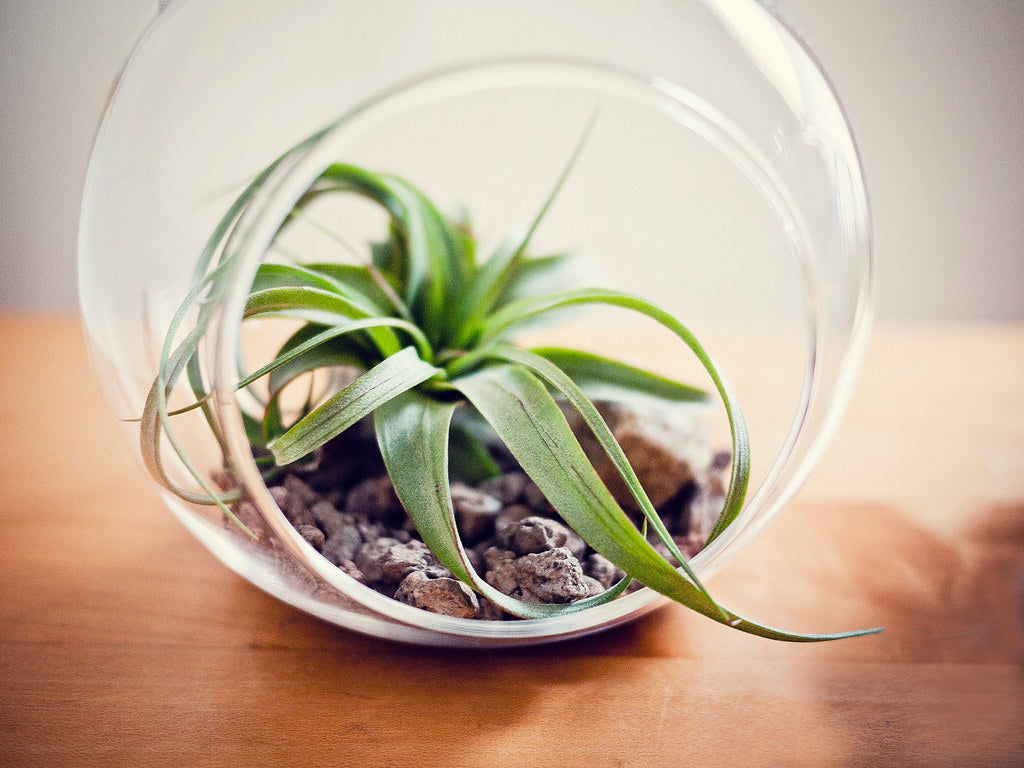Although air plants are rather easy to grow, there are certain mistakes to avoid in air plant care that can harm them. It is not easy to figure out the reason why an air plant died, there are some points that you should keep in mind if you have air plants and avoid doing them.
What Mistakes To Avoid While Taking Air Plant Care
This article will talk about some common mistakes that should be avoided while taking care of your tillandsias.
- Too Much or Too Little Watering - Water is one of the most important factors determining the health of your air plants. Over watering and under-watering both are not good for tillandsias’ health. Hydrating these particular plants is sometimes tricky. Submerge your plant completely in water for a few hours, shake the water off, and let the plant air dry for 4 - 5 hours. Put it back in the container only when the plant is completely dry. A major air plant care mistake usually people make is they don’t pay attention to the plants after watering. As a rule of thumb, always note the condition of your plant’s leaves the next day after watering. The leaves should be open and flat, and not curl and folded. Adjust the water frequency and quantity after noticing this. If you over-water your plant and do not let it dry properly before the second watering session, the plant will die. Usually, misting your tillandsia with water without removing it from its container cause this issue.
- Salt and Chemical Exposure - Although water softener salts might be good for your skin and hair, they can kill an air plant. You must have noticed a white crust on your home plant’s soil after you have watered it a few times and let it dry. These white crusts are salt deposits that you don’t want to see if you want to take good air plant care. Since air plants do not grow in soil, these salts cannot be filtered, and thus, ends up depositing on the end of your leaves. Over time, this deposit will suffocate your plant as it hinders the absorption of water and nutrients by trichomes. In some areas, municipal water has chlorine in it, and therefore, it is not recommended for good air plant care. Then what water you should use? Well, the best water you can get for tilladsia is from ponds, rain, well, or pond. You can also use non-carbonated mineral water from the market. From store-bought and filtered water, most minerals have already been extracted out. Watering your tillandsia with such water might not harm the plant, but it will starve it of all important nutrients as they have already been removed.
- Too Little or Too Much Light - Too little, too much, and too bright light, all are dangerous for an air plant. Direct sunlight will dehydrate the plant quickly. Placing your tillandsia in a hot room or beside a hot window will do the same. Sometimes, direct sunlight can burn the leaves as well. If you have placed your air plant in a glass container, avoid placing the container in direct sunlight. The inside of the container may get too hot. The glass also acts as a magnifying glass and can concentrate the sunlight on leaves causing them damage. Most tillandsia species prefer 55 to 85 degrees. Similarly, for good air plant care, you should not keep your plant at a place that does not receive bright light at most times of the day. Try not to display air plants in dark hallways and bathrooms.
- Poor Air Circulation - A common mistake many people make while taking air plant care is not ensuring proper good air circulation. Although some plants prefer very high humidity, not all plants can survive this condition. It is always good to dry your air plant before placing it in its container. You can dry them under a ceiling fan as well. This prevents moist bases that lead to root rot.
- Cold - Many tillandsias grow at high elevations naturally, but they see freezing or frost very rarely. Usually, air plants cannot survive too cold temperatures or temperatures below 32 degrees. Exposing commercially available air plants to extreme cold temperatures would be nothing but a death sentence to them.
The Last Words
Air plants care is not rocket science. These innocent plants are not very demanding and you can easily manage them even with a busy schedule. By avoiding above-mentioned mistakes, you can enjoy a thriving and healthy air plant near you.






